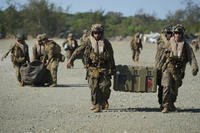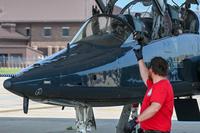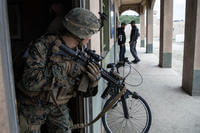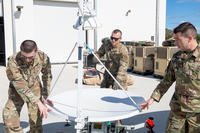Although the Pentagon's general counsel's office is still slicing and dicing the language, the NRO's boss says he is "confident" that the Defense Secretary and Director of National Intelligence will soon approve a document laying out new responsibilities for the maker and operator of the nation’s spy satellites.
The document, known as the statement of principles, is all part of an effort by the national security leadership -- and pushed hard by NRO Director Bruce Carlson -- to improve the NRO's performance and accountability. Once the principles are approved in the next few weeks, the new NRO charter should flow fairly effortlessly from them. The NRO charter has not change substantially in a quarter of a century.
Carlson made that clear in his comments to reporters today, part of an effort to tell the public about an increased commitment to keeping on cost, on schedule and to building satellites and sensors that work as advertised. "I see it as one of the dominant functions in my time at NRO to formalize processes... We haven't done this as well as we should have in the past," he said, adding that he wants to do this "in writing so they are not personality dependent."
Carlson was attending a conference on mission assurance for the space community. It included representatives from the NRO, all the space prime contractors, NASA, the Missile Defense Agency and the Air Force.
As part of the mission assurance effort, those government agencies are negotiating an agreement of standards to assure quality across the space domain and the industry. This includes software and hardware. The standards include four broad elements: mission success; predictability; timeliness; repeatability.
One of the keys to achieving this will that old acorn, systems engineering. Virtually every study done by every greybeard or wise woman over the last half-decade -- during which the NRO and Air Force badly stumbled on w wide range of space programs -- concluded that systems engineering must be beefed up and performed as early as possible in the development process.
Lt. Gen. Tom Sheridan, head of the Air Force's Space and Missile Systems Center in Los Angeles, put it simply: "At the earliest stages, at the beginning of design we have to bake in mission assurance."








